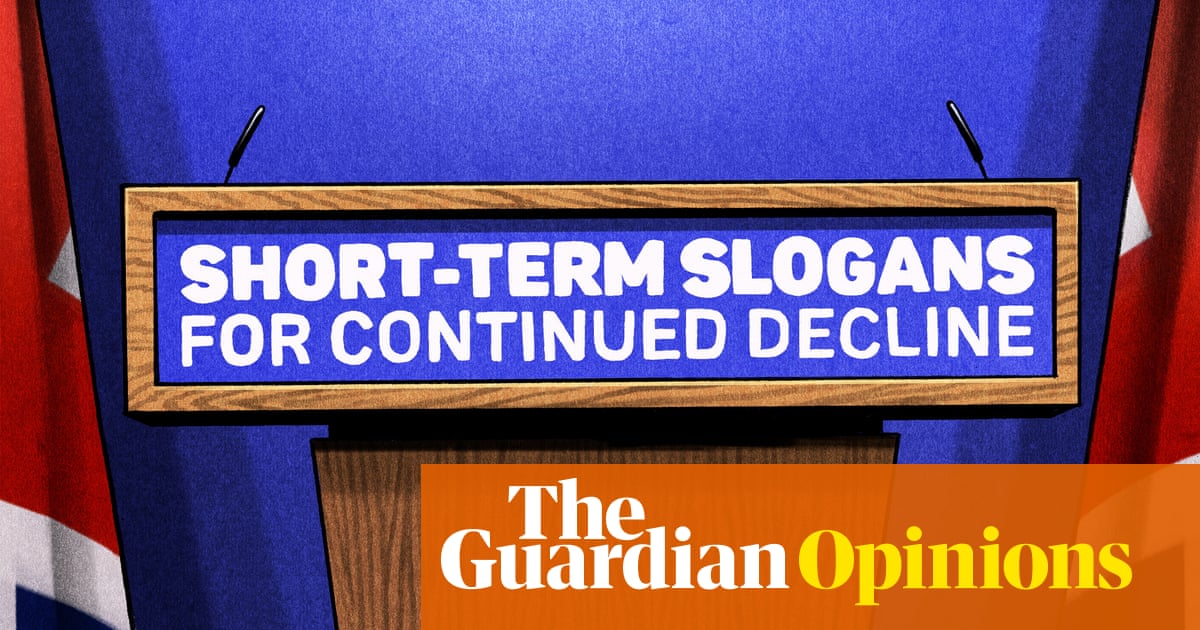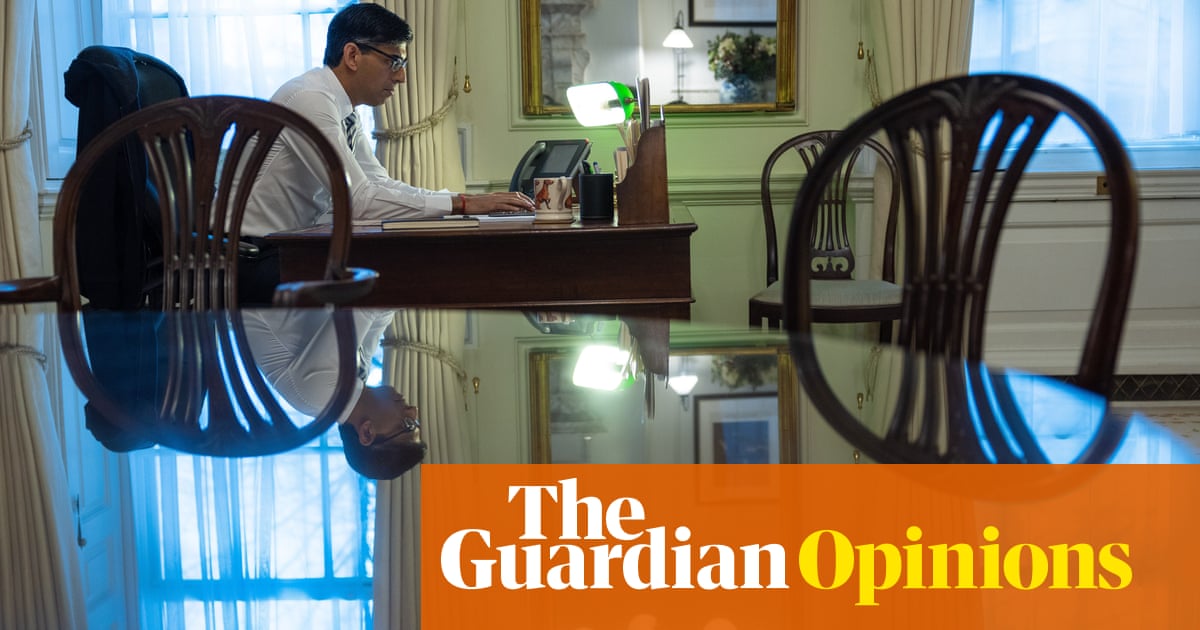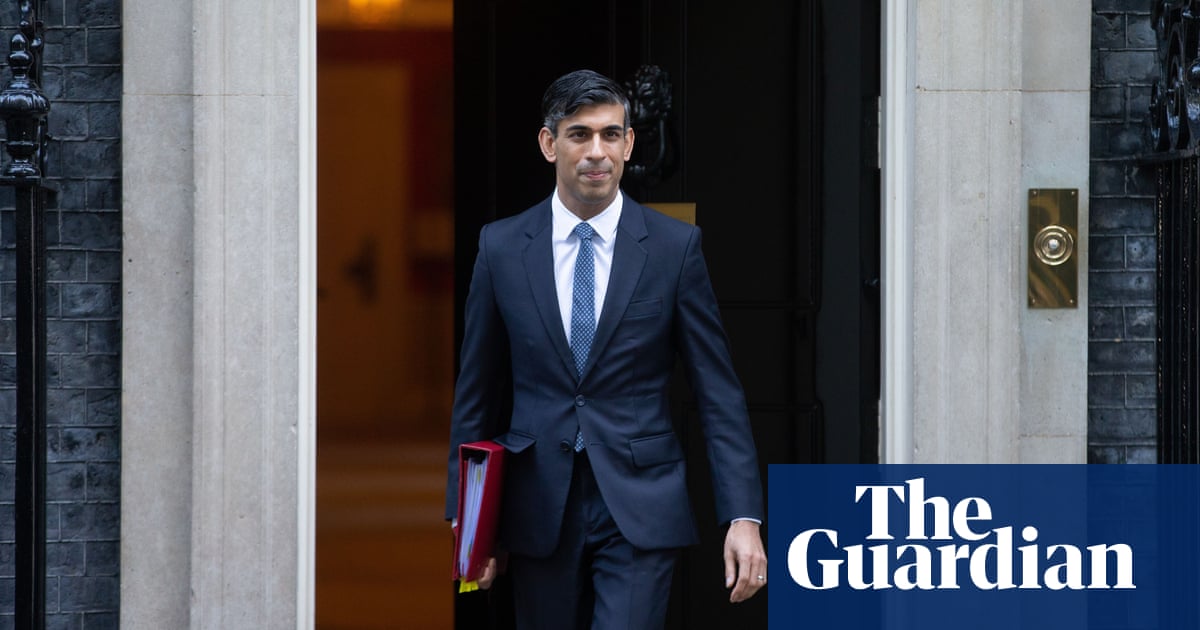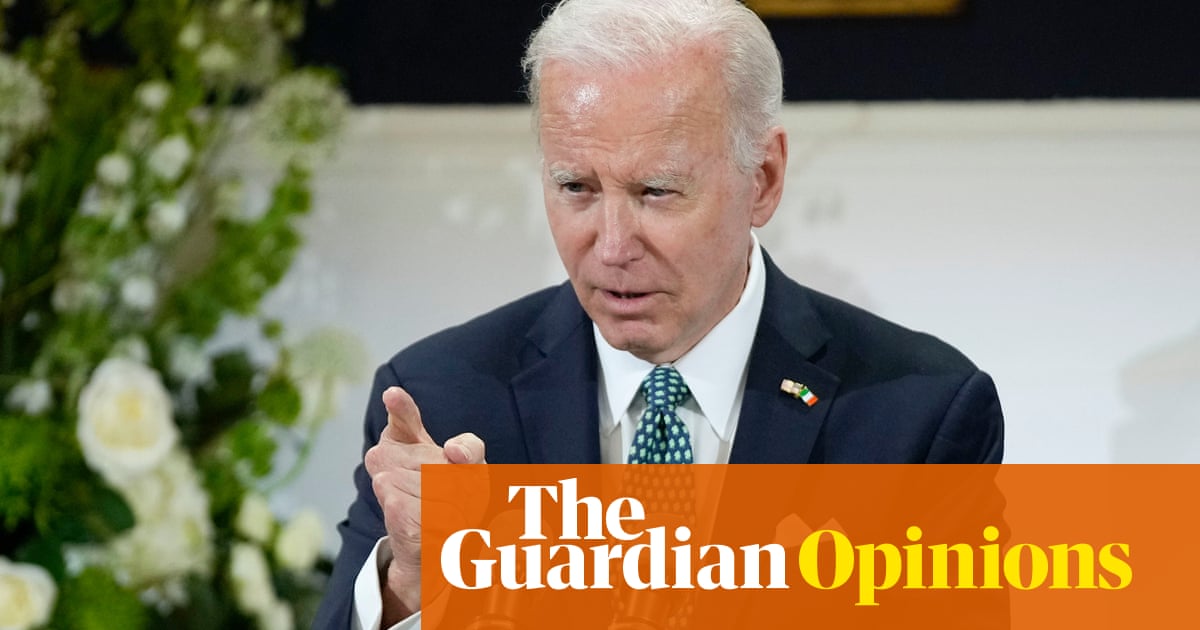
Rishi Sunak has been an MP since 2015 and has never known the indignity of opposition, or even the frustration of a slow track to ministerial office. He was chancellor of the exchequer within five years. That rate of promotion looked extraordinary from the outside. To its beneficiary it must have felt consistent with a record of precocious academic and professional achievement.
To observe the rapidity of the ascent is not to pass judgment on whether it was deserved. Sunak is smart, industrious and adept enough to have run the Treasury in trying circumstances. Enough Conservative MPs admired those qualities to install him as prime minister without a contest and in rebuke to their own members who had preferred Liz Truss only months before and who, given the chance, would probably have reinstated Boris Johnson.
Reliance on appointment over election is the awkward and defining feature of Sunak’s rise to the top. Whatever traits he might boast as qualifications for leadership, he cannot claim to be a winner.
Losing to Truss must have been painful for a man who had previously won at most things in life. It cannot now be easy presiding over a regime in decline. The irritation shows. When asked about things that are going wrong, Sunak sounds exasperated by the premise of the question, as if the fault lies with needy voters who don’t appreciate how hard his job has turned out to be.
A psychological trick that vanity plays to avoid the humiliation of failure is to redefine success on more available terms. Sunak has pondered his predicament and rebranded himself as a courageous leader who takes “long-term decisions for a brighter future”, thus excusing him from the test of delivering good government this side of an election.
The aspiration is self-evidently noble, which is a reliable sign that it is meaningless. No candidate has ever pledged short-term tactics for a darker tomorrow.
Sunak’s allies cast him as a martyr to the facts, confronting the electorate with the difficult trade-offs required for responsible stewardship of the nation. If that were true, he might admit that the current tax base will not support public services at a level expected of an affluent European country. He might tell people that the wealth they currently have tied up in property will one day be tapped to pay for their social care.
He won’t do that, in the same way that he won’t admit that leaving the European single market was a mistake, or change planning rules that give people who already own homes a veto over plans that might benefit those who don’t.
There are many awkward messages that a prime minister might deliver if he were focusing on the long term and minded to confront audiences with hard choices. The list doesn’t include truncating a high-speed rail project so it still costs money but loses the utility for which it was designed. Nor does it involve letting deadlines for reducing carbon emissions slip.
Prolonged uncertainty over HS2 looks inept. Reneging on environmental targets is more insidiously disingenuous. Sunak characterised the manoeuvre as an exercise in centre-ground pragmatism, motivated by concern that overzealous environmentalists discredit their cause and corrode consent for the greater goal of net zero. Illustrating the point, he pledged not to implement fictitious policies around mandatory car-sharing and meat-eating.
That rhetorical trick revealed the true, campaigning function of the policy shift. Retreating from an ambitious net zero policy opens a space to be filled with scare stories about Keir Starmer as a hostage to eco-fanatics. When Sunak says he worries that consumers will recoil from the bill for net zero, he is really threatening to invent a scarily big cost, attach it to hypothetical Labour policy and post it to marginal constituencies.
To call that long-term governance is Johnson-level chutzpah, but delivered without the trademark Boris glint that showed at least some awareness that he knew that you knew that he was bullshitting. Sunak does it with an unctuous piety that suggests he actually believes what he is saying.
There are two reasons why the prime minister’s claim to be making choices for the long term rings hollow: he doesn’t have a mandate and he’s running out of time. With an election due next year, the future of the Conservative party will be settled in a battle of manifestos – the official Tory one and the shadow platforms of potential candidates in the leadership contest that would follow defeat.
Suella Braverman has entered the fray this week with a speech claiming that most refugees are only pretending to be victims of persecution, that the institutional apparatus founded after the second world war to protect human rights is obsolete and that swarms of migrants pose an existential threat to the west.
Does the prime minister share that view? The argument is consistent with the spirit of the law he has passed denying sanctuary to anyone who crosses the Channel in small boats. The tone undermines Sunak’s diplomatic efforts to reassure Britain’s allies that Brexit is not a symptom of nationalist derangement.
The prime minister indulges Braverman’s position without putting it in his own words. It is a routine cowardice required by the terms of his appointment to Downing Street. He is supposed to be an economic caretaker for the country, while deferring civil war in his party. The same unwritten clause obliged him to abstain when parliament voted to censure Johnson for lying.
Sunak might consider himself unlucky to have reached the apex of power just as that power is draining away. He certainly gives the impression of feeling cheated out of the chance to govern in more auspicious circumstances. But the timing of his ascent is consistent with the cycle of a long incumbency. He is the coddled product of one-party rule, which hothouses clever, ambitious young MPs who then turn out to be unimaginative and ideologically complacent.
The prime minister has every incentive to persuade himself that he is charting a high road of strategic statecraft. But that doesn’t make it so. The actual trajectory is a path of least resistance through a Tory core-vote comfort zone, towards a dishonest election campaign that will postpone tough choices and make the country harder to govern in the longer term.
Rafael Behr is a Guardian columnist












